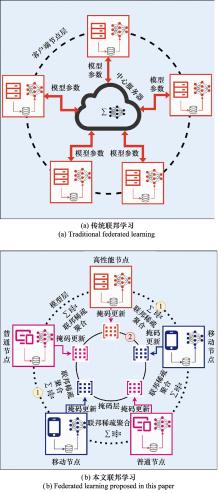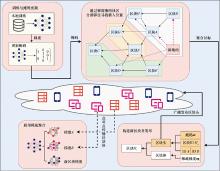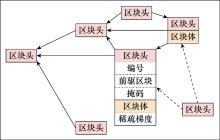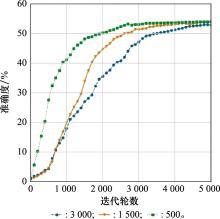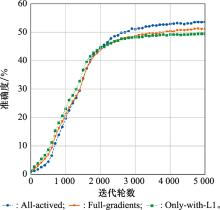| 1 |
MANOGARANG,SHAKEELP,FOUADH,et al.Wearable IoT smart-log patch: an edge computing-based Bayesian deep learning network system for multi access physical monitoring system[J].Sensors,2019,19(13):3030-3048.
doi: 10.3390/s19133030
|
| 2 |
MCENROEP,WANGS,LIYANAGEM.A survey on the convergence of edge computing and AI for UAVs: opportunities and challenges[J].IEEE Internet of Things Journal,2022,9(17):15435-15459.
doi: 10.1109/JIOT.2022.3176400
|
| 3 |
LIUY,YUH M,XIES L,et al.Deep reinforcement learning for offloading and resource allocation in vehicle edge computing and networks[J].IEEE Trans.on Vehicular Technology,2019,68(11):11158-11168.
doi: 10.1109/TVT.2019.2935450
|
| 4 |
MCMAHAN H B, MOORE E, RAMAGE D, et al. Communication-efficient learning of deep networks from decentralized data[C]// Proc. of the International Conference on Artificial Intelligence and Statistics, 2017: 1273-1282.
|
| 5 |
SATTLERF,MULLERK R,SAMEKW.Clustered federated learning: model-agnostic distributed multitask optimization under privacy constraints[J].IEEE Trans.on Neural Networks and Learning Systems,2021,32(8):3710-3722.
doi: 10.1109/TNNLS.2020.3015958
|
| 6 |
CHOSHA,CHUNGJ,YIND,et al.An efficient framework for clustered federated learning[J].IEEE Trans.on Information Theory,2022,68(12):8076-8091.
doi: 10.1109/TIT.2022.3192506
|
| 7 |
朱素霞,顾玢珂,孙广路.基于相似度加速的自适应聚类联邦学习[J].通信学报,2024,45(3):197-207.
|
|
ZHUS X,GUF K,SUNG L.Adaptive clustering federated learning via similarity acceleration[J].Journal on Communications,2024,45(3):197-207.
|
| 8 |
LI X X, JIANG M R, ZHANG X F, et al. FedBN: learning federated learning on non-IID features via local batch normalization[C]//Proc. of the International Conference on Learning Re-presentations, 2021.
|
| 9 |
XIA Y Y, CHEN S G. Dual aggregated federated learning with depthwise separable convolution for smart healthcare[C]//Proc. of the IEEE International Conference on Communication, 2023: 154-159.
|
| 10 |
ZHUANG W M, WEN Y G, ZANG S. Divergence-aware fede-rated self-supervised learning[C]//Proc. of the International Conference on Learning Representations, 2022.
|
| 11 |
XIE C, KOYEJO O, GUPTA I. Asynchronous Federated Optimization[C]//Proc. of the Neural Information Processing Systems, 2020.
|
| 12 |
赵家雪,苏铓,侯金鹏,等.一种基于同态签名的可验证联邦学习方案[J].密码学报,2023,10(5):1019-1034.
|
|
ZHAOJ X,SUM,HOUJ P,et al.A verifiable federated learning scheme based on homomorphic signatures[J].Journal of Cryptologic Research,2023,10(5):1019-1034.
|
| 13 |
LIY Z,CHENC,LIUN,et al.A blockchain-based decentralized federated learning framework with committee consensus[J].IEEE Network,2021,35(1):234-241.
doi: 10.1109/MNET.011.2000263
|
| 14 |
CHEC J,LIX L,CHENC,et al.A decentralized federated learning framework via committee mechanism with convergence guarantee[J].IEEE Trans.on Parallel and Distributed Systems,2022,33(12):4783-4800.
doi: 10.1109/TPDS.2022.3202887
|
| 15 |
WANGP,SUNW,ZHANGH B,et al.Distributed and secure federated learning for wireless computing power networks[J].IEEE Trans.on Vehicular Technology,2023,72(7):9381-9393.
doi: 10.1109/TVT.2023.3247859
|
| 16 |
FENGL,ZHAOY O,GUOS Y,et al.BAFL: a blockchain-based asynchronous federated learning framework[J].IEEE Trans.on Computers,2022,71(5):1092-1103.
doi: 10.1109/TC.2021.3072033
|
| 17 |
KIM Y, HONG C. Blockchain-based node-aware dynamic weighting methods for improving federated learning perfor-mance[C]//Proc. of the Asia-Pacific Network Operations and Management Symposium, 2019.
|
| 18 |
MAJEED U, HONG C. FLchain: federated learning via MEC-enabled blockchain network[C]//Proc. of the Asia-Pacific Network Operations and Management Symposium, 2019.
|
| 19 |
BAO X L, SU C, XIONG Y, et al. Flchain: a blockchain for auditable federated learning with trust and incentive[C]//Proc. of the Big Data Computing and Communications, 2019: 151-159.
|
| 20 |
HONG J Y, WANG H T, WANG Z Y, et al. Efficient split-mix federated learning for on-demand and in-situ customization[C]// Proc. of the International Conference on Learning Representations, 2022.
|
| 21 |
HORVATH S, LASKARIDIS S, ALMEIDE M, et al. FjORD: fair and accurate federated learning under heterogeneous targets with ordered dropout[C]//Proc. of the Neural Information Processing Systems, 2021: 12876-12889.
|
| 22 |
LI A, SUN J W, LI P C, et al. Hermes: an efficient federated learning framework for heterogeneous mobile clients[C]// Proc. of the Mobile Computing and Networking, 2021: 420-437.
|
| 23 |
WANGD,ZHANGN F,TAOM X,et al.Knowledge selection and local updating optimization for federated knowledge distillation with heterogeneous models[J].IEEE Journal of Selected Topics in Signal Processing,2023,17(1):82-97.
doi: 10.1109/JSTSP.2022.3223526
|
| 24 |
LIU R X, WU F Z, WU C H, et al. No one left behind: inclusive federated learning over heterogeneous devices[C]//Proc. of the Knowledge Discovery and Data Mining, 2022: 3398-3406.
|
| 25 |
BEILHARZ J, PFITZNER B, SCHMID R, et al. Implicit model specialization through dag-based decentralized federated learning[C]//Proc. of the Middleware Conference, 2021: 310-322.
|
| 26 |
SHI Y F, SHEN L, WEI K, et al. Improving the model consistency of decentralized federated learning[C]//Proc. of the International Conference on Machine Learning, 2023: 31269-31291.
|
| 27 |
KOH,LEEJ,SEOS,et al.Joint client selection and bandwidth allocation algorithm for federated learning[J].IEEE Trans.on Mobile Computing,2023,22(6):3380-3390.
doi: 10.1109/TMC.2021.3136611
|
| 28 |
DAI R, SHEN L, HE F X. DisPFL: towards communication-efficient personalized federated learning via decentralized sparse training[C]//Proc. of the International Conference on Machine Learning, 2022.
|
| 29 |
BLONDELD V,GUILLAUMEL J,LAMBIOTTER,et al.Fast unfolding of communities in large networks[J].Journal of Statistical Mechanics: Theory and Experiment,2008,2008,10008.
doi: 10.1088/1742-5468/2008/10/P10008
|
| 30 |
HSU T M, QI H, BROWN M. Measuring the effects of non-identical data distribution for federated visual classification[EB/OL]. [2023-10-03]. https://arxiv.org/abs/1909.06335.
|
